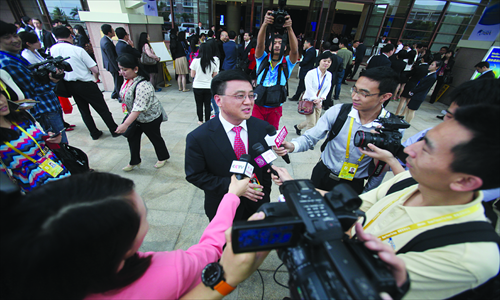More investment caution seen
China is no longer seen as a gold mine for any and all investors, according to the consensus view at the Boao Forum for Asia (BFA) roundtable Sunday, entitled "The Changing Investment Landscape 2013."
Moderated by Zhang Lifen, associate editor of the Financial Times, the panel lined up investment heavyweights managing over $3 trillion between them, to offer their views on China's attractiveness as an investment destination.
Zhang pointed to some of the indicators showing that investors have become more wary about China, such as a fall in foreign direct investment (FDI) in 2012 by 18 percent year-on-year to its lowest level since 2009.
Renowned investor Anthony Bolton said that 2012 had been tough but that fortunes had picked up again in the last six months.
He said that shares in Hong Kong were doing particularly well and that as more money began to flow between Hong Kong and the mainland, the gap between the two would begin to close.
David Marchick, managing director of the Carlyle Group, was similarly bullish, pointing to the $700 million that his group had invested in China last year.
While he acknowledged that growth rates were slowing down, Marchick said they still remained very healthy due to high yearly growth in consumer spending.
The Asian investors at the table echoed a more cautious optimism, while dwelling on specific problem areas, namely regulation.
John Zhao, executive vice president of Legend Holdings, said that worries about dwindling FDI could be overstated.
He said that FDI figures could be misleading at a time when uncertainty about Chinese markets is easing and domestic consumption is booming.
For Antony Leung, the chairman for greater China of Blackstone, the major obstacle remains compliance with regulation.
In-fighting and power grabs among government institutions including the National Development and Reform Commission have left companies confused and with no clear rules to follow, said Leung.
Richard Daley, the former mayor of Chicago and a prominent investment figure, gave a final framework of comparison by showing what China and the US needed to do together.
For Daley, the fact that Chinese investments in the US and vice-versa are met with suspicion from both governments is a big problem.
He called for the establishment of a strong platform for mutual investment that would satisfy the needs of both the government and business sectors in both countries.
